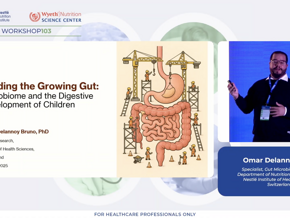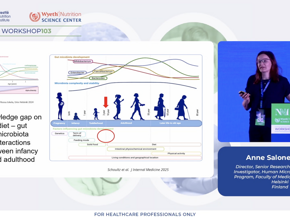Infant malnutrition increases risk of adult attention deficit disorder
These findings were true even though the study participants had received excellent nutritional rehabilitation throughout childhood, and regardless of gender or childhood standard of living. The results were also consistent with teacher-reported attention problems in the participants during grammar school, thus indicating continuity of attention problems throughout their lifespan.
“Our primary hypothesis was largely confirmed: previously malnourished adults have an increased level of attention problems,” wrote the researchers in the Journal of Nutrition.
A New Link
Researchers have long established a link between prenatal or postnatal malnutrition and long-term physical and mental deficits. Authors of the present study note that adult survivors of the World War II’s Dutch famine who had been malnourished prenatally, were found to have increased incidences of schizophrenia, antisocial behaviour, and affective disorders.
Other studies show that postnatal malnutrition, particularly iron deficiencies, during early childhood, have been linked to hyperactivity, neuro-cognitive functioning and attention problems in late childhood, adolescence and young adulthood.
No known long-term studies exist showing the effect of postnatal malnutrition on adult attention, however. The present study is the first to examine such effects.
Study Details
The researchers assessed attention problems of 145 Barbadian adults who had been followed longitudinally since the late 1960s and early 1970s. Eighty of these adults had experienced moderate to severe protein-energy malnutrition during infancy. The remaining 65 were healthy classmates of the index group, matched for age and gender.
Attentional processes were evaluated through use of the Conners Adult ADHD Rating Scales (CAARS Self-Report Screening Version) and the Conners Continuous Performance Test (CPT). Participants were also given a short-form IQ test.
The results showed that previously malnourished adults had higher CAARS scores, indicating more attention problems, than the control group. Similarly, previously malnourished adults were more likely to have CPT scores falling within the clinical range for attention disorders. IQ was found not to be a significant predictor of CAARS scores, but the malnutrition effect on CPT scores was attenuated when IQ was included in the model.
“These findings have important implications for public policy, which has generally been directed at short-term medical solutions after significant malnutrition has occurred,” wrote the researchers.
"Given the lifelong functional compromise shown by our study, even among individuals whose medical management after the malnutrition episode was excellent, short-term investment in prevention may in the long run prove to be highly economical in view of the potential long-term social costs.”
Source:
The Journal of Nutrition.
Infant Malnutrition is Associated with Persisting Attention Deficits in Middle Adulthood
Authors: J. Galler, C. Bryce, M. Zichlin, G. Fitzmaurice, G.D. Eaglesfield
If you liked this post you may also like



